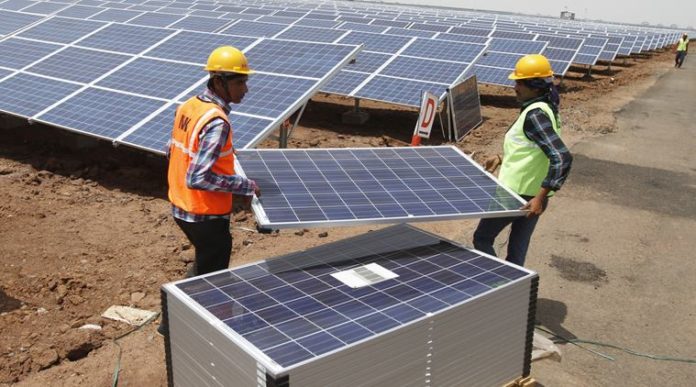New Delhi: India and Central Asian nations should cooperate and collaborate in the field of energy, considering the complementarities and scope, a senior official of the Ministry of External Affairs (MEA) said here today.
Bandaru Wilsonbabu, Joint Secretary (ERS), in the MEA rued that the share of energy exports from Central Asian nations to India remains miniscule despite complementarities.
Addressing ‘India-Central Asia Business Council Webinar on Energy Cooperation’ organised by FICCI, he referred to India’s substantial progress and initiatives, particularly in the installed renewable energy capacity, which stood fourth largest globally.
“The share of non-fossil fuel energy has reached 40% of India’s energy mix,” he said.
“India stands ready to share its experience and expertise in renewable energy and welcome the Central Asian countries in the International Solar Alliance and theOne Sun, One World, One Gridinitiative,” the official said.
However, he noted that “India remains dependent on fossil fuel imports” and underlined “the need for enhanced connectivity between India and Central Asia.”
He said Central Asian countries endowed with rich natural resources could enhance trade ties with India in the energy space.
“Turkmenistan is among the top-five countries of the world in proven reserves of natural gas, Tajikistan has substantial reserves of crude oil, and considerable reserves of natural gas are found in Uzbekistan. In addition, the mountainous countries of Tajikistan and the Kyrgyz Republic have a huge hydropower potential,” Wilsonbabu added.
Also read: Joint fight needed against terrorism, says India at SCO meet attended by Pak, China
Dinesh D. Jagdale, Joint Secretary in the Ministry of New and Renewable Energy, said, “India is implementing one of the largest and the fastest energy transition programmes by focusing on large-scale development and deployment of renewable energy.”
He said India had achieved 40 per cent of its installed capacity from non-fossil fuel-based sources nine years ahead of schedule.
“India has gained a lot in RE experience, and we will be happy to include this as a part of our exchange capacity-building programmes,” Jagdale said.
“By 2030, we expect renewable energy to become the front runner in the overall energy mix,” the official said, adding, “For it to happen, we need to work on storage elements and hydropower.”
He said some Central Asian countries have much more hydro potential. “So we will also be very keen to look at the opportunities there as well.”
Ambassador of Uzbekistan Dilshod Akhatov said that in his country “a special place is given to the growth of electricity generation, including projects of renewable energy sources.”
He added that “one of the main aims is to increase the installed capacity of solar and wind power plants to 8GW by 2026.”
Noting the Indian initiatives in the renewables space, Ambassador Akhatov said, “Uzbekistan is ready to establish cooperation with India on the implementation of joint projects or the production of solar modules, batteries for energy storage and the production of other renewable energy systems.”








